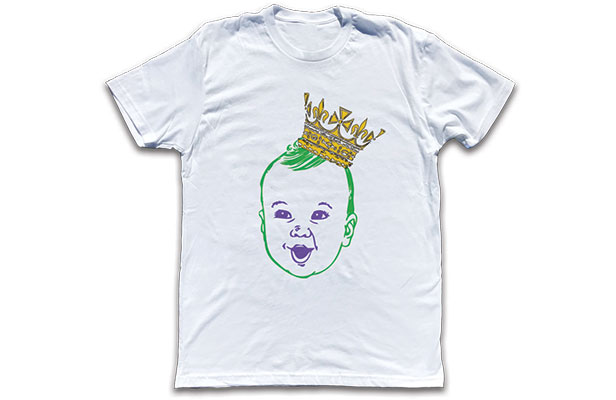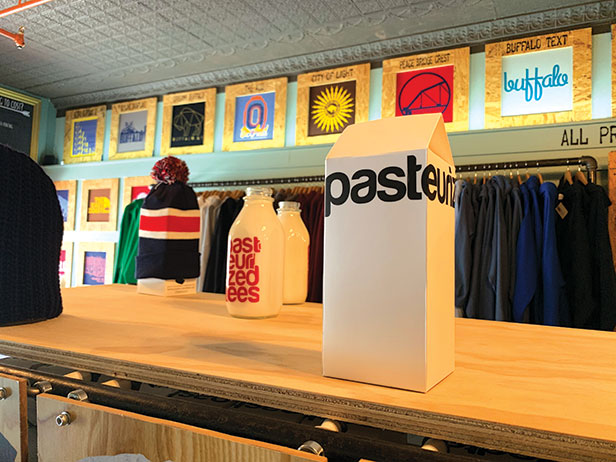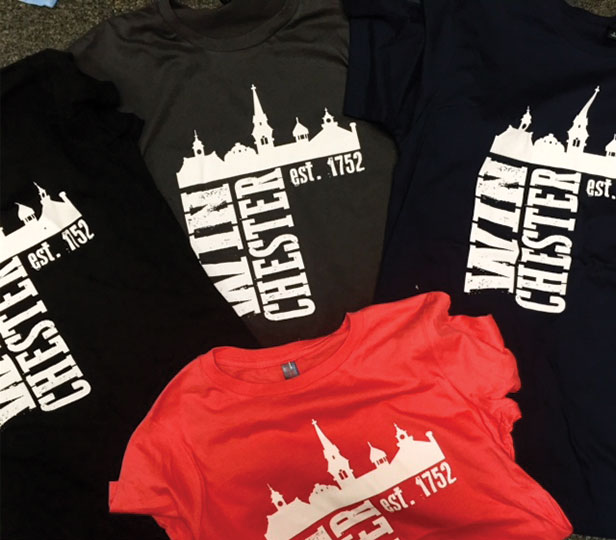September 16, 2019
Benefits Of Starting Your Own Clothing Line
Many apparel decorators find a creative outlet – and an extra revenue stream – by launching their own clothing lines.
When Logan Roberts decided to launch a line of original “swamp streetwear” two years ago, it took the New Orleans man a single afternoon online – setting up a Shopify site and social media accounts – for Bayou A Shirt to be born.
Don't Miss: 3 tips for starting your own apparel line
Roberts already had the contacts and expertise to create custom apparel; after all, he’s the owner of Ink Mule, a 6-year-old merch management shop. “We do a lot of designs and artwork for other people,” Roberts says. “Periodically, you get ideas that you think are funny or will sell well,” but don’t necessarily work for any client projects.

Bayou A Shirt, based in New Orleans, designs tongue-in-cheek apparel with a Louisiana theme, like this king cake baby tee.
In fact, a lot of the initial designs Roberts and his co-workers posted on the Bayou A Shirt webstore were “just things we had on our computer” or from “messing around over the weekend,” Roberts says. “We figured, ‘Let’s just put them up and see what happens.’” One of the first tees on the site was a common crawfish-eating joke, featuring a severed crawfish head and the slogan “Louisiana sucks.” Other best-sellers include “Louisianimal” tees and hats embroidered with the phrase “Ya Boix.”
“The only prerequisite is that it has to either be funny or Louisiana-related,” Roberts says. “It’s just a nice break from doing other people’s art and printing.”
Roberts is not the first printer to channel promotional industry know-how into real-world retail success. Starting an original apparel line – whether sold online, within a decorator’s showroom or in other boutiques – is a natural segue for decorators looking for another outlet for their creativity or an additional revenue stream to tap into. “Let’s face it, the money’s in retail,” says Darlene Kent, owner of Signet Marketing in Winchester, VA. “When we sell to somebody and they resell, they’re making more money than we are.”
A couple of years ago, Signet Marketing created an apparel line featuring the Winchester skyline (a row of distinctive church steeples) and started selling it on its website and in the local visitor center. “You go to other [Civil War] towns, like Gettysburg, and every other store is a T-shirt shop,” Kent says. “We don’t have that here.”

Pasteurized Tees packages its Buffalo-inspired shirts in milk cartons.
A key to success for distributors and decorators starting their own lines tends to be an intimate knowledge of local tastes and customs. Brew City Promotions (asi/145576) has been cashing in on that idea for decades. The Milwaukee-based business started life as a T-shirt-selling kiosk in the mall 30-odd years ago. “Instead of just printing a logo, we were coming up with cool graphics and ideas,” says owner George Keppler. “I remember people laughing at us and saying, ‘Who would ever buy a Milwaukee T-shirt?’ Local has become a really big thing. We were doing it long before it was cool. We’re constantly coming up with these little idiosyncrasies that make Milwaukee great.”
One of Keppler’s favorite tees just bears the slogan “Where’s the bubbler?” It makes out-of-towners scratch their heads, he says, but locals know it refers to a water fountain.
“It’s a nice break from doing other people’s art and printing.” Logan Roberts, Bayou A Shirt
Another example is a logo Jacob Smith of Flushing, MI, trademarked. The simple circular design features the phrase “Flint River Yacht Club” with a swordfish leaping out of the center. “It’s always been a joke around town that there’s a yacht club, so we decided to make it an actual thing,” Smith says. “The logo looks like it’s an actual yacht club from somewhere on the East Coast, but we’re in the middle of Michigan.”
Smith’s mother, Mary, owns I Can Market That.com (asi/229755) and helped her son launch the line, which is being sold in the local Hallmark store, as well as at arts and craft shows. It works, Smith says, because it’s relatable. “People around here know the river,” he says. “They know what the joke is.”
Selling a retail line forces decorators to be nimble, stay on top of trends and anticipate customers’ ever-changing tastes. In other words, it can be a fantastic research and development division for the rest of your business. For example, Brew City Promotions has retail locations at the Milwaukee airport and downtown. “We use those quite a bit as a testing ground,” Keppler says. If a trend is picking up steam at one of the stores, Keppler knows he can pass it along to his wholesale customers.
And though retail’s woes are well-known in the age of Amazon, a brick-and-mortar in the right location still has earning potential. Though Pasteurized Tees, a custom apparel shop that opened in Buffalo in 2011, has a website, owner Michael Bowen says he does most of his business in person. “A T-shirt can be a great impulse buy,” he says. “People might be walking by the store, see something they like and stop in to grab it.”

Signet Marketing sells T-shirts and other apparel featuring the Winchester, VA, skyline.
It helps, he adds, that Buffalo is in a renaissance of sorts, with development on the rise and the population bouncing back. Many of the tees Bowen sells celebrate that proud Buffalo spirit. “Buffalo has always been crapped on for its weather and bad sports, and there was a mass exodus in the ’80s and ’90s,” Bowen says. “Now people are coming back and want to spit in the faces of others who mock the town. … I don’t know if this shop would work in many places. Do the wearers have the passion for it?”
Randy Anderson, owner of The Imprinted Sportswear Shop in Pueblo, CO, doesn’t even bother with a website. Though he’s been in the decoration business for decades, Anderson opened a retail store about a decade ago to sell spiritwear for area high schools and the local university. Many of the high schools have separate online spirit shops, but Anderson says those haven’t really cut into his business. “It’s actually a great sales tool,” he adds. “You can buy the same exact garment from us with probably a better design for $11.99 and you can try it on and get it right away.”
THERESA HEGEL is the executive editor of Wearables. Contact: thegel@asicentral.com; follow her on Twitter at @theresahegel.

Product Hub
Find the latest in quality products, must-know trends and fresh ideas for upcoming end-buyer campaigns.